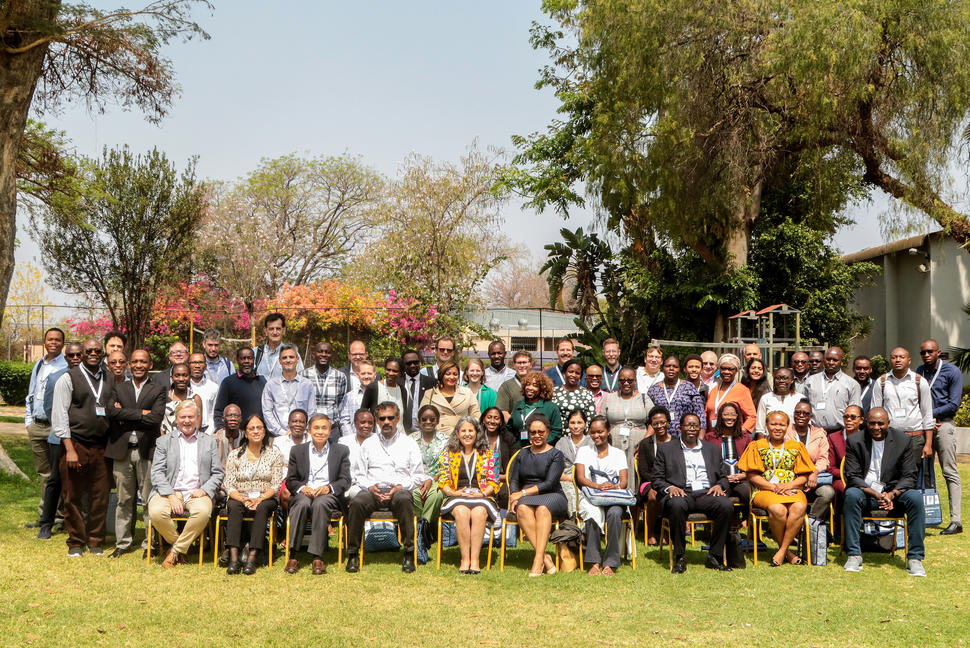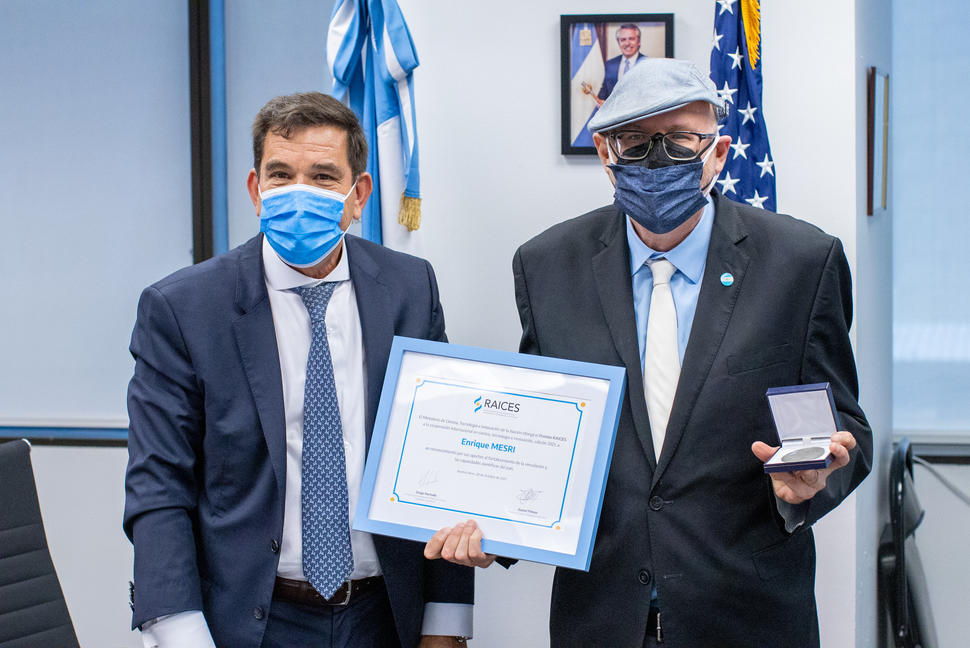The brunt of the HIV epidemic is borne by Low- and Middle-Income Countries (LMICs), with sub-Saharan Africa being the epicenter of the epidemic. As people living with HIV are aging, LMICs are also facing a concomitant rise in the incidence of malignancies. Cancer rates in LMICs are affected by the higher burden and younger age of acquisition of oncogenic viruses (particularly human papillomavirus [HPV], Epstein Barr virus [EBV], Kaposi sarcoma-associated herpesvirus [KSHV], hepatitis B virus [HBV] and hepatitis C virus [HCV]) and behavioral risk factors. Also, these countries have health care systems that are poorly equipped to screen, diagnose and treat cancer. AIDS defining malignancies remain a significant problem; in some countries of East Africa, Kaposi sarcoma is among the most common cancers in men, even in with the expansion of antiretroviral therapy.
NCI and the Fogarty International Center (FIC) have partnered in several efforts for developing research capacity in LMICs on HIV-associated cancers. Below is a list of the initiatives that have been developed to increase research capacity in LMICs:
- Sub-Saharan African Collaborative HIV and Cancer Consortia (U54) RFA, (CA-13-010), projects ended in 2020.
- Collaborative Consortia for the Study of HIV-Associated Cancers: U.S. and Low-and Middle-Income Country Partnerships (U54) RFA, (CA-16-018), projects will end in 2022.
- U.S. and Low- and Middle-Income Country (LMIC) HIV-Associated Malignancy Research Centers (U54 Clinical Trials Optional) RFA, (CA-20-001), projects will end in 2025.
- U.S. and Low- and Middle-Income Country (LMIC) HIV-Associated Malignancy Research Centers (U54 Clinical Trials Optional) RFA, (CA-22-011), projects will end in 2028.
The newest initiative is the HIV-Associated Malignancy Research Centers (HAMRCS). The goals of the HAMRCS and the Collaborative Consortia for the Study of HIV-Associated Cancers are to provide an opportunity to conduct research on HIV-associated cancers that will increase our knowledge of the pathogenesis of cancer that are common in people living with HIV as well as provide data on early detection and treatment options. The knowledge gained will be of value to the LMICs and the U.S. Support research in the understanding of, prevention of, and treatment of HIV-associated cancers. The goals of the HAMRCS are:
- Develop research capacity in LMICs with a significant burden of HIV-associated cancers.
- Support collaborations between U.S. investigators and LMIC investigators.
- Foster the development of early career investigators from the U.S. and LMICs interested in conducting research in HIV-associated cancers.
HIV-Associated Malignancy Research Centers (HAMRCs) (funded in FY 2020)
- CA254571: United States-East Africa HIV-Associated Malignancy Research Center (USEAHAMRC) for Career Development and the Prevention, Early Detection and Efficient Linkage to Care for Virus-related Cancers: University of California San Francisco/Uganda and Tanzania
- CA254568: Einstein/Rwanda/DRC Consortium for Research in HIV/HPV/Malignancies: Einstein/ Rwanda and Democratic Republic of Congo
- CA254564: Innovations for screening and prognosis in HIV+ cancers including Kaposi sarcoma, cervical cancer, and lymphoma in Malawi and South Africa: University of North Carolina Chapel Hill/Malawi and South Africa
- CA254569: Pediatric HIV/AIDS & Infection-Related Malignancies Research Consortium for sub-Saharan Africa (PARCA): Baylor College of Medicine/Uganda/Malawi/Botswana
- CA254518: The East Africa Consortium for HPV and Cervical Cancer in Women living with HIV/AIDS: Indiana University/Kenya and Uganda
- CA254566: Lung cancer in East Africa and the relationship to HIV-1 infection: epidemiology, molecular characterization, and imaging: Case Western Reserve University/Uganda and Tanzania
- CA254565: HIV and HCC in Africa: The H2A Consortium: Johns Hopkins University/Uganda and Senegal
HIV-Associated Malignancy Research Centers (HAMRCs) (funded in FY 2023)
- CA254571: The AVANÇO Research Consortium: A Mozambique/Brazil/Texas Alliance to advance novel and affordable technologies for the prevention and diagnosis of cervical cancer in women living with HIV: MD Anderson Cancer Center/Mozambique/Brazil
- CA277834: Partnership to Assess Viral and Immune Landscape Intersections with ONcology for People Living with HIV (PAVILION): H. Lee Moffitt Cancer Center/Zimbabwe/South Africa/Germany
- CA277846: Kaposi Sarcoma in the Era of ART in Africa Program (KEAAP): Louisiana State University Health Science Center/Tanzania/Zambia
Collaborative Consortia for the Study of HIV-Associated Cancers (funded in FY 2017)
- CA221204: The Zambia AIDS Malignancies Diagnosis and Pathogenesis Program (ZAMDAPP) University of Nebraska-Lincoln/Zambia
- CA221205: Epigenomic Biomarkers of HIV-Associated Cancers in Nigeria: Northwestern University/Nigeria
- CA221208: UM CFAR SCCC Argentina Consortium for research and training in Virally Induced AIDS Malignancies UM CFAR SCCC Argentina Consortium for research and training in Virally Induced AIDS Malignancies: University of Miami/ Argentina

